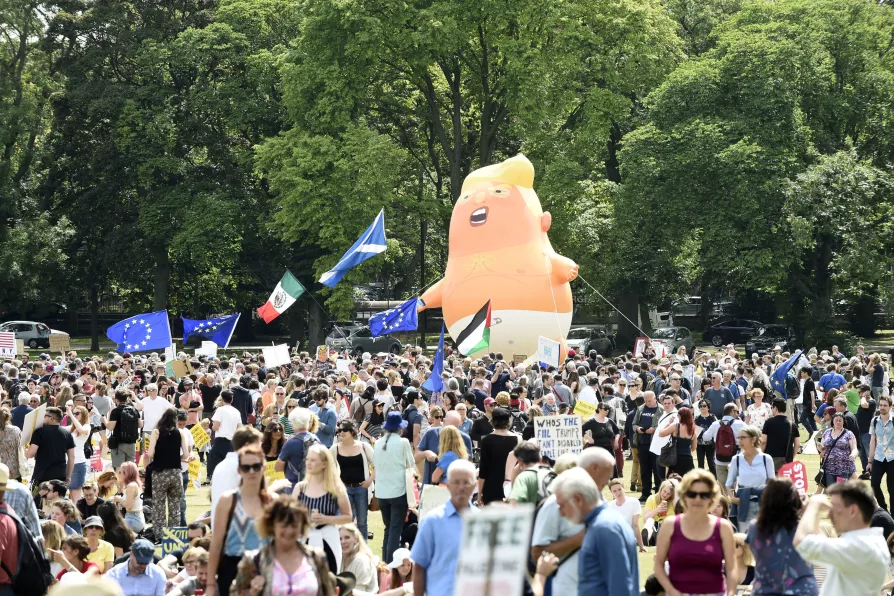LINDA PENTZ GUNTER reports from the one of 2,700 protests against the Trump government’s power grabs, on a day when seven million people defied fear-mongering in a outpouring of joy and hope in what might be the biggest protest in US history


LONDONERS will suffer the third visit of Donald Trump in just 18 months when he turns up for the Nato summit taking place here in early December.
While the summit itself will be held on the edge of London, there will be a glittering reception at Buckingham Palace on December 3, for which demonstrators are already preparing.
The visit will of course take place during the election, an election in which Trump has already intervened to back Boris Johnson and Nigel Farage.

Europe is acquiescing in Trump’s manoeuvrings — where Europe takes over the US forever war in Ukraine while Washington gets ready for a future fight with China. And it’s working people who will be left paying the price, says DIANE ABBOTT MP

As US hegemony crumbles and Trump becomes ever more unpredictable, European powers cling to the pact’s militarist agenda in a bid to disguise their own increasing irrelevance, writes CHRIS NINEHAM












